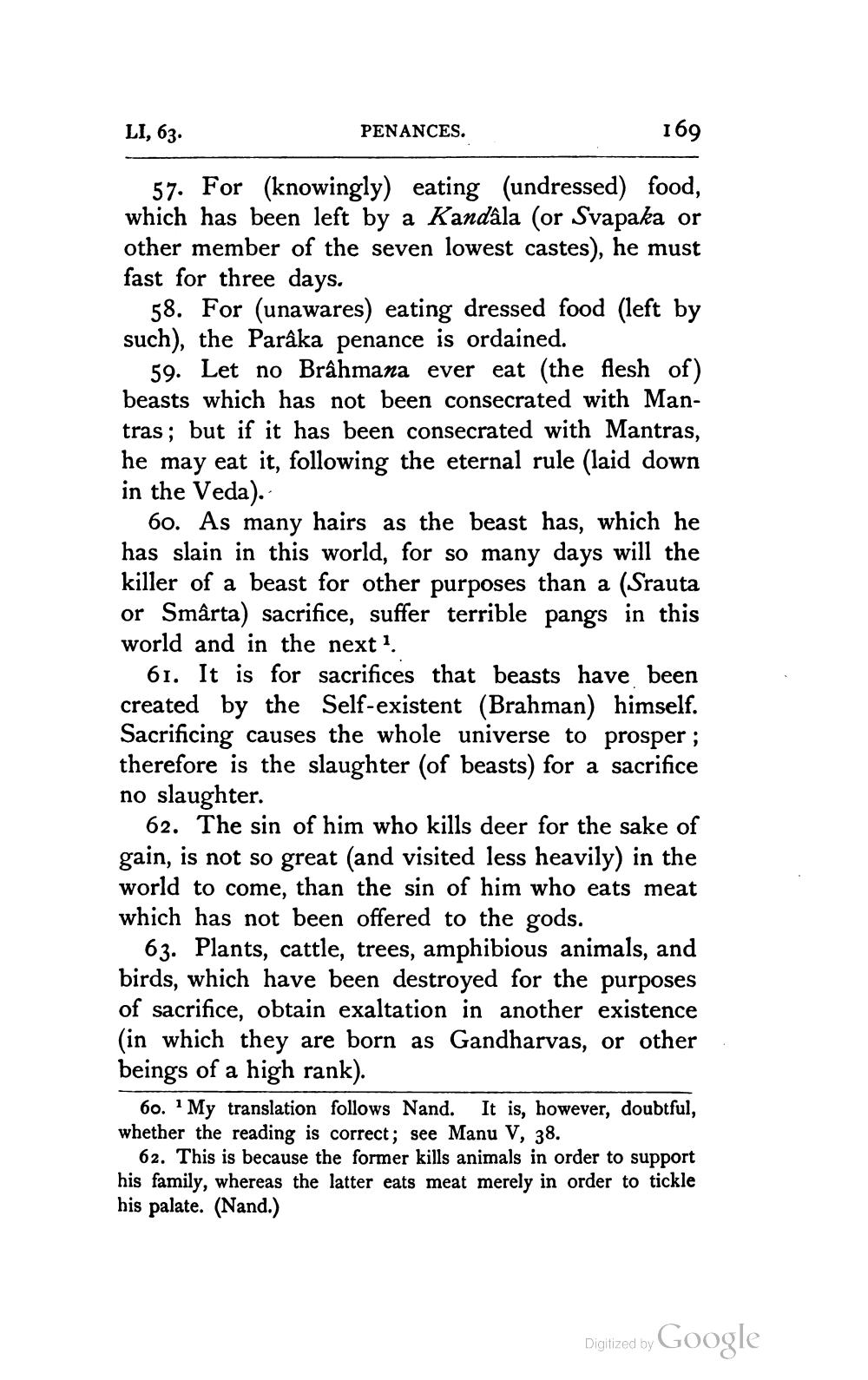________________
LI, 63.
PENANCES.
169
57. For (knowingly) eating (undressed) food, which has been left by a Kandala (or Svapaka or other member of the seven lowest castes), he must fast for three days.
58. For (unawares) eating dressed food (left by such), the Parâka penance is ordained.
59. Let no Brâhmana ever eat (the flesh of) beasts which has not been consecrated with Mantras; but if it has been consecrated with Mantras, he may eat it, following the eternal rule (laid down in the Veda).
60. As many hairs as the beast has, which he has slain in this world, for so many days will the killer of a beast for other purposes than a (Srauta or Smärta) sacrifice, suffer terrible pangs in this world and in the next 1.
61. It is for sacrifices that beasts have been created by the Self-existent (Brahman) himself. Sacrificing causes the whole universe to prosper ; therefore is the slaughter (of beasts) for a sacrifice no slaughter.
62. The sin of him who kills deer for the sake of gain, is not so great (and visited less heavily) in the world to come, than the sin of him who eats meat which has not been offered to the gods.
63. Plants, cattle, trees, amphibious animals, and birds, which have been destroyed for the purposes of sacrifice, obtain exaltation in another existence (in which they are born as Gandharvas, or other beings of a high rank).
60. My translation follows Nand. It is, however, doubtful, whether the reading is correct; see Manu V, 38.
62. This is because the former kills animals in order to support his family, whereas the latter eats meat merely in order to tickle his palate. (Nand.)
Digitized by Google




